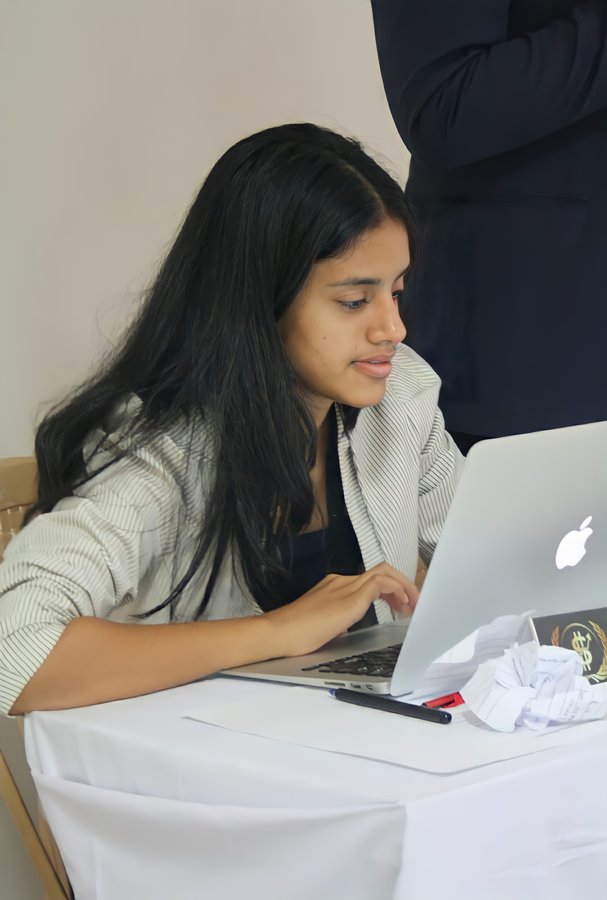Spotlight Woman of the Week: Dakshayani Velayudhan
5 minuteRead

Remembering the date of November 26, 1949, when the Constituent Assembly adopted the Constitution of India after three years of arduous work, which came into force two months later on January 26, 1950. Popular historical narratives have led us to believe that the Indian Constitution was drafted solely by men. However, there were 15 women among the 299 members of the Constituent Assembly. They were lawyers, freedom fighters, politicians, and suffragettes from all walks of life. They discussed, debated, and expressed their opinions while defining the principles that would guide the newly independent India, led by Bhimrao Ramji Ambedkar. Dakshayani Velayudhan, a Dalit woman from Kerala, was one of them.
Dakshayani Velayudhan was an Indian parliamentarian and leader of the oppressed classes who lived from July 4, 1912, to July 20, 1978. She was a member of the Pulayar community and was among the first generation of Pulayars to receive an education. The community of Pulayas, one of the lowest castes in Kerala were shunned and denied basic human rights such as dignity and access to basic resources such as food, clothing, transportation, roads, education, and even hair cutting. Many Pulayas were forced to live in grassland or roam around half-naked. The Kings of Ernakulam forbade them from crossing roads used by the upper caste, and they were also forbidden from using even a small patch of public land for a festival, marriage, or gathering. She is one of the first women from her community to wear an upper cloth, the first Scheduled Caste woman graduate in India, a science graduate, a member of the Cochin Legislative Council, and one of India's Constituent Assembly's nine female members. Her arguments and speeches against governors' gubernatorial powers and their impact on the character of federalism were foreshadowing. She was quite clear that with such an arrangement of institutional powers with the governors, relations between the Centre and the states would undoubtedly deteriorate.
Maani, Dakshayani's mother, was also a progressive woman who inspired her daughter. The young girl was a part of a series of firsts for her community as she grew up witnessing such radical social change, and growing up in a family that was at the forefront of many of these changes. Some even suggest that it is inaccurate to say that Velayudhan was the first woman in her community to wear an upper cloth. This credit may have been given to her older sister and mother, Thayyithara Maani, before her. Dakshayani's Sanskritised name was a problem for her family because Pulaya girls and boys could only have names like Pullamma, Pomalla, Kunju, or Chakki, which made no sense and had nothing to do with Hindu scriptures. She describes how the Ezhavas, who were higher in the caste hierarchy than the Pulayas and were mostly small cultivators, toddy tappers, and weavers, used to openly mock her as she left her house. Surprisingly, the Latin Christian community adopted the Hindu caste's untouchability behaviour and despised her presence in public places. This reflects the covert nature of caste practises, which serve the interests of the privileged over the religion itself. The upper caste made every effort to prevent Dakshayini from progressing, but this did not deter her mother's determination to see her through. Despite the changing times, her mother converted to Christianity with her older siblings and Dakshayani's uncle Krisnethi, but she did not convert Dakshayani and her younger brother K.K. Madhavan.
Despite being a devout Gandhian, Dakshayani sided with B R Ambedkar on many Scheduled Castes issues during the Constituent Assembly debates. She agreed with Ambedkar, who advocated for moral safeguards' and the immediate removal of their social disabilities rather than separate electorates. She expressed her appreciation for the draft Constitution on November 8, 1948, after Dr. BR Ambedkar introduced it for discussion. She also called for more decentralisation, In her debates, it was the most prominent and influential campaign. She believed that any form of centralised authority should be avoided in the Constitution. Her unwavering belief in inclusive governance is reflected in her campaigning for the Constitution's spirit of freedom, equality, and protection of rights.
She also proposed that the final draft of the Constitution be adopted after it has been ratified by a general election. Velayudhan advocated for the implementation of non-discrimination provisions through public education, noting that the Constituent Assembly's endorsement of a resolution condemning caste discrimination would send a powerful public message. "How people conduct themselves in the future, not how the law is actually executed," she said, "will determine how the Constitution works." She also ran for the Adoor Lok Sabha constituency in the 1971 general elections, but came in fourth out of five candidates.
Velayudhan prioritised the struggles of her community over her gender, as evidenced by her impassioned speech at the Constituent Assembly, in which she didn't speak as a Pulaya woman but hoped for the Indian Republic to have "no barriers based on caste or community." She was outspoken in her support for Article 17 of the Indian Constitution, which prohibits the practise of untouchability in any form. Velayudhan's presence among other female members of the Constituent Assembly, such as Vijaylakshmi Pandit and Sarojini Naidu, many of whom came from privilege, was a telling sight in itself, as she was frequently told by other members that she asked too many questions. The life and times of Dakshayani should be studied in order to arouse intellectual curiosity about Dalit women's struggles and rise. Civil society, the political class, and academic institutions must recognise this and be willing to share positions in power and privilege with socially marginalised and historically oppressed people.
The Kerala government established the 'Dakshayani Velayudhan Award' to honour Dakshayani Velayudhan, the state's first and only Dalit woman MLA. The award will be given to women who have contributed to the empowerment of other women in the state. The award was budgeted at Rs 2 crore. Kerala Finance Minister Dr. Thomas Isaac announced this during the presentation of the Kerala Budget 2019 in the Legislative Assembly on January 31, 2019.
Dakshayani Velayudhan, an incredibly brave woman who smashed the caste barrier to smithereens, was a pioneer in charting the course of independent India. Dakshayani gradually moved away from active electoral politics in the years following her time as a member of the Constituent Assembly and the provisional parliament, dedicating the rest of her life to working for the upliftment of underprivileged people. She also demonstrated to the entire nation, not just the Dalit community, the importance of standing firm and holding our heads high, no matter what the odds were.
Write, Record and Answer! Consume Unlimited Content! All you need to do is sign in and its absolutely free!
Continue with one click!!By signing up, you agree to our Terms and Conditions and Privacy Policy.










